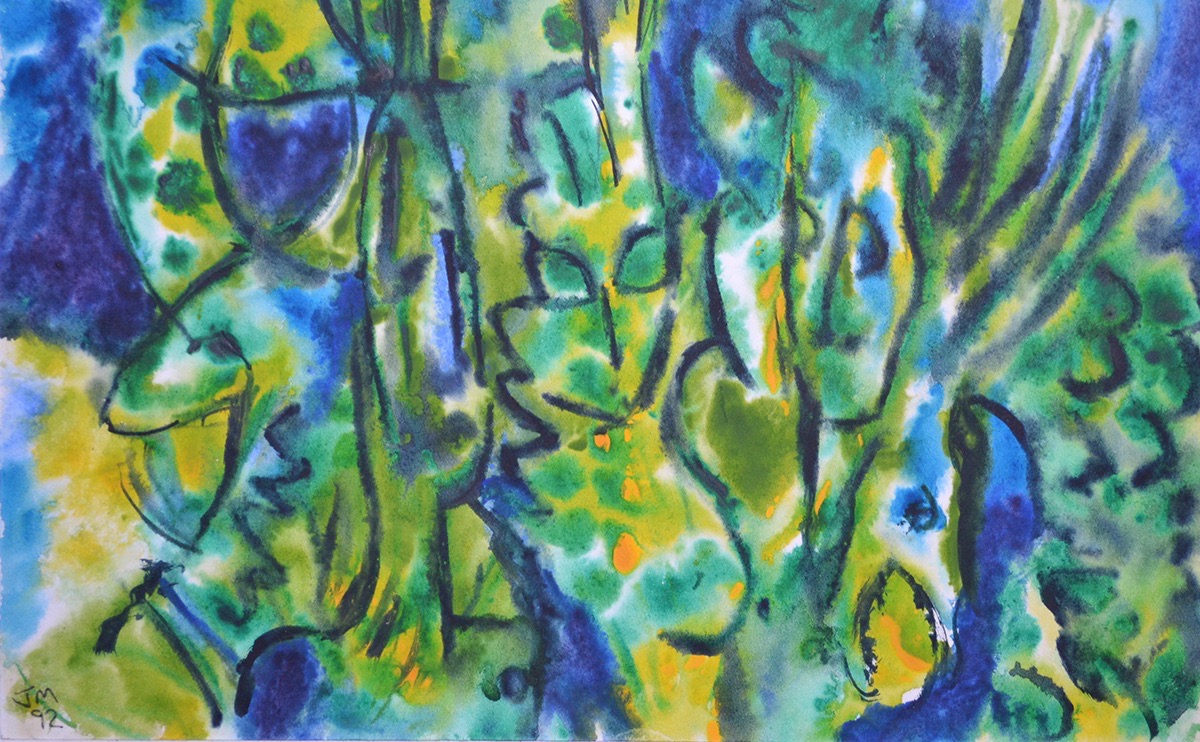
Jungian Dreams Workshop
Applications are now open for September 2025.
A series of six Saturday workshops exploring dream and dream interpretation through the Jungian lens.
We will develop and deepen our conversation with dreams and dream symbolism, widening our understanding of collective and personal unconscious processes, both in and outside the consulting room. No prior knowledge of Jung is assumed.
Each meeting will focus on a particular aspect of dreams.
Applications are now open for September 2025
- Who is it for
- Structure
- Entry requirements
- Course fees
- Course content
- Access information
- Resources
- How to apply
The workshop is open to psychotherapists, counsellors, or therapists of any modality with an interest in working with dreams. The ability to openly engage with the reading material is an essential part of the group’s discussions.
6 Saturdays, 10:00 am – 1:00 pm on Zoom
10:00 – 11:30: Seminar led by an experienced Jungian Analyst on different aspects of dreams.
11:30 – 11:45: break
11:45-13:00: Practical engagement with a dream, or dreams, provided by the participants from either their own experience or that of their clients/patients – with Ruth Calland.
The course is designed for qualified therapists who are currently practicing, but we do also welcome applications from trainees with at least 100 hours of clinical practice.
Standard – £575
Trainee – £ 540
Please note that the bpf will not be held responsible for travel/hotel expenses made or incurred in the unlikely event of this course either being cancelled or postponed. See our cancellation and refund policies for more information.
2025-2026 dates will be announced soon.
2024-2025 Dates
October 5th – The Alchemy of Dreams
Marilyn A F Mathew
In this seminar we will explore the various alchemical themes and symbols that occur in dreams. Archetypal processes, contexts, characters, colours, patterns, topography, direction, and shapes, for example, can offer insight into deep layers of the psyche. This can help us amplify the current position of ego with Self and also track the development of themes of individuation through dream series.
Marilyn A F Mathew is a Training Analyst for the British Jungian Analytic Association (BJAA/bpf). As well as working in private practice with adults online, she supervises and has a special interest in the relationship of the psyche with soma, very early relationships and non-verbal communication.
November 2nd – Dreams: Active Imagination and Guided Imagery
Dale Mathers
‘Dreams are letters from the Self’, said Marie Louise von Franz. They are written in symbols – a language in which the images are continually changing, so there is never one meaning for any dream. The meanings evolve over time, which is why there can’t be a ‘dictionary of dreams’. There are three main ways to engage with dreams: free association, active imagination and guided imagery. The latest research in neuroscience clearly shows how and where dreams are formed – and when we use any of these three techniques we use the same neural networks to decode dreams as we do to create them. In this seminar, we’ll look at this research, its implication for clinical practice, and play with these techniques. Participants will need drawing paper and crayons.
Dr. Dale Mathers MB. BS., is a retired psychiatrist, former training analyst and supervisor with the Association of Jungian Analysts. Member of the Russian Society for Analytical Psychology. Humanistic psychotherapist. Teaches analytical psychology in the UK, Ukraine, and Russia. Author of many publications, including: Dreams: the basics, (2024) London,
Routledge, and Depth psychology and climate change, (2019) London: Routledge (ed.)
December 7th – Nightmares
Ruth Calland
Do you ride the nightmare, or does it ride you? We will distinguish nightmares from night terrors, and think about recent developments in the application of Steven Porges’ polyvagal theory (about fight/flight/freeze responses) to our understanding of the function of nightmares and the appearance of the archetypal.
We will identify the common features of nightmares and think about the origins of their archetypal patterning, and how the individual can attempt to work with nightmares in waking life. We will look at both the personal soul aspect, and mythology around nightmares across different cultures. We will consider the nightmare’s potential to express aspects of collective or global trauma.
Ruth Calland is a Jungian analyst and supervisor working with adults and couples.She was Chair of the BJAA during the pandemic, when she initiated the development of the once-weekly Jungian training. She teaches on the BPF Psychodynamic Psychotherapy Training, is a training analyst, and the Creative Workshops Coordinator for BJAA. She has an interest in the outsider, neurodiversity, queerness and creativity. Her paper ‘Race, power and intimacy in the intersubjective field: the intersection of racialized cultural complexes and personal complexes’ won the Fordham Prize in 2021. She is also a professional artist.
January 11th 2025 – Dream Series
Julian Masters
Jung wrote, ‘I attach little importance to the interpretation of single dreams’. In this seminar we will explore the dream within the context of a series where it becomes possible to see the dynamism of the individuation process at work over time. We will examine a few specific examples to show the extraordinary creativity of these unconscious processes.
Julian Masters is a member of the British Psychotherapy Foundation (bpf) and the International Association of Analytical Psychology (IAAP). He works as a Jungian psychotherapist in private practice in Oxford. He teaches on BPF’s MSc course ‘Psychodynamics of Human Development’ and its introductory course ‘Psychotherapy Today’. Julian is also a painter, musician, and composer.
February 8th – Dream in Art and Literature
Rupert Tower
This seminar will explore dreams as deep and meaningful products of the mind that can guide us towards greater wholeness as individuals in our individuation process; and as a creative source to bring purposive healing and balance to our conscious attitude as well as symbols of communication with the unconscious.
In his Red Book, Jung spoke of dreams: “I must learn that the dregs of my thought, my dreams, are the speech of my soul. I must carry them in my heart and go back and forth over them in my mind, like the words of the person dearest to me. They are the guiding words of the soul”. (Red Book Liber Novus, Shamdasani, Ed. 2009, p.233)
We will examine symbols of dreams, and different types of dreams, including famous dreams, from the perspective of the cultural and collective treasure house of Film, Art and Literature. Film clips and art images will be shown to illustrate the above.
Rupert Tower is a psychologist and Jungian Analyst of the Society of Analytical Psychology. Previously he worked in the Arts and as an Applied Social Psychologist and Director of an international qualitative research consultancy exploring consumer motivations towards brands and advertising. He has published articles on Social Psychology, Market Research and Jung’s concept of the Shadow in organizations. He is in private practice in Hampstead and teaches across several Jungian organisations. He has co-edited a book on the Shadow with his friend and colleague from the SAP, Christopher Perry. It is entitled “Jung’s Shadow Concept: the hidden Light and Darkness within Ourselves, and was published by Routledge in May 2023.
March 8th – Social Dreaming. Exploring the unconscious dynamics of the collective
Helen Morgan
Social Dreaming is a pioneering methodology that has been developed since 1982 by Gordon Lawrence and his colleagues at the Tavistock Institute, London and elsewhere. This perspective regards dreams as more than the private possession of the dreamer and suggests that, by exploration in a social context through free association and amplification, the dream may help us gain a greater awareness of the hidden, underlying dynamics of the setting within which it takes place. This idea has an ancient lineage. Long before Freud and Jung began to study them, dreams and dreaming had great significance to people such as the Australian Aboriginals, Native Americans, Africans etc. as they attempted to understand the meaning of their lives and the world in which they lived. In this session we will explore some of the principles underlying the concept of the Matrix, using illustrations from previous Matrices convened in International settings.
Helen Morgan is a Fellow of the British Psychotherapy Foundation (BPF) and is a training analyst and supervisor for BJAA. Her background is in therapeutic communities with adolescents and in adult mental health. She was chair of the British Association of Psychotherapists from 2004–2008, and chair of the British Psychoanalytic Council from 2015-2018. She has convened and written about Social Dreaming Matrices since 1995. She has also written and spoken on the subject of racism and her book, ‘The Work of Whiteness. A Psychoanalytic Perspective’ was published in 2021 by Routledge.
__________________
This course will be conducted online, via Zoom.
Blogs
How to become a psychotherapist in the UK – The British Psychotherapy Foundation
My Journey as a Black Trainee in Psychodynamic Psychotherapy – The British Psychotherapy Foundation
How Couples Psychotherapy Can Transform Relationships – The British Psychotherapy Foundation
Why become a psychotherapist? (part I)
Why become a psychotherapist? (part II)
Videos
What’s it like to be a psychotherapist? Psychoanalytic psychotherapist (youtube.com)
What’s it like to be a psychotherapist? Child and Adolescent Psychotherapist (youtube.com)
What’s it like to be a psychotherapist? Jungian Analyst (youtube.com)
Register for September 2025.
Kindly download the application form. Once completed, please send it to Angelina Verduzco, BJAA Training Manager, at: [email protected]
The bpf is committed to diversity and inclusivity in all the work we deliver. We are fully dedicated to promoting, maintaining and supporting equality of opportunity in all aspects of our organisation and, as such, the bpf welcomes applications from all sections of society.
It has been wonderful to have studied at the bpf, it has changed so many perspectives in my life and I truly cherish this rich experience.”
Catia, bpf Student
Simply, it exceeded all my expectations, and sufficiently impressed and enthused me to consider a future career in psychotherapy. On a personal level it has changed me; something that has been accelerated by beginning my own personal analysis. I find myself thinking about non-verbal communications much more as a consequence of having attended the course.”
bpf Student
The ‘course has allowed to dip my toe into the analytic world and provided a broad overview of the analytic landscape. It has enhanced my understanding of psychoanalytic ideas and I’ve particularly benefited from speaking to experienced clinicians. The discussion groups in particular have been useful to clarify my own ideas and get a different perspective from others. Overall, it has helped me to determine if I would like to pursue work in this field.”
bpf Student
We are now accepting applications for membership from current BPC registrants.
Our equivalency pathway for non-BPC registrants to gain membership is currently on hold until September 2025.
New Courses Starting in 2025
Online:
- Psychodynamic and Jungian Theory for Qualified Practitioners (Taught Online)
bpf North:
- Foundation Course (Taught in Newcastle)
- Psychoanalytic & Psychodynamic Psychotherapy Training (Taught in Newcastle & Online)

